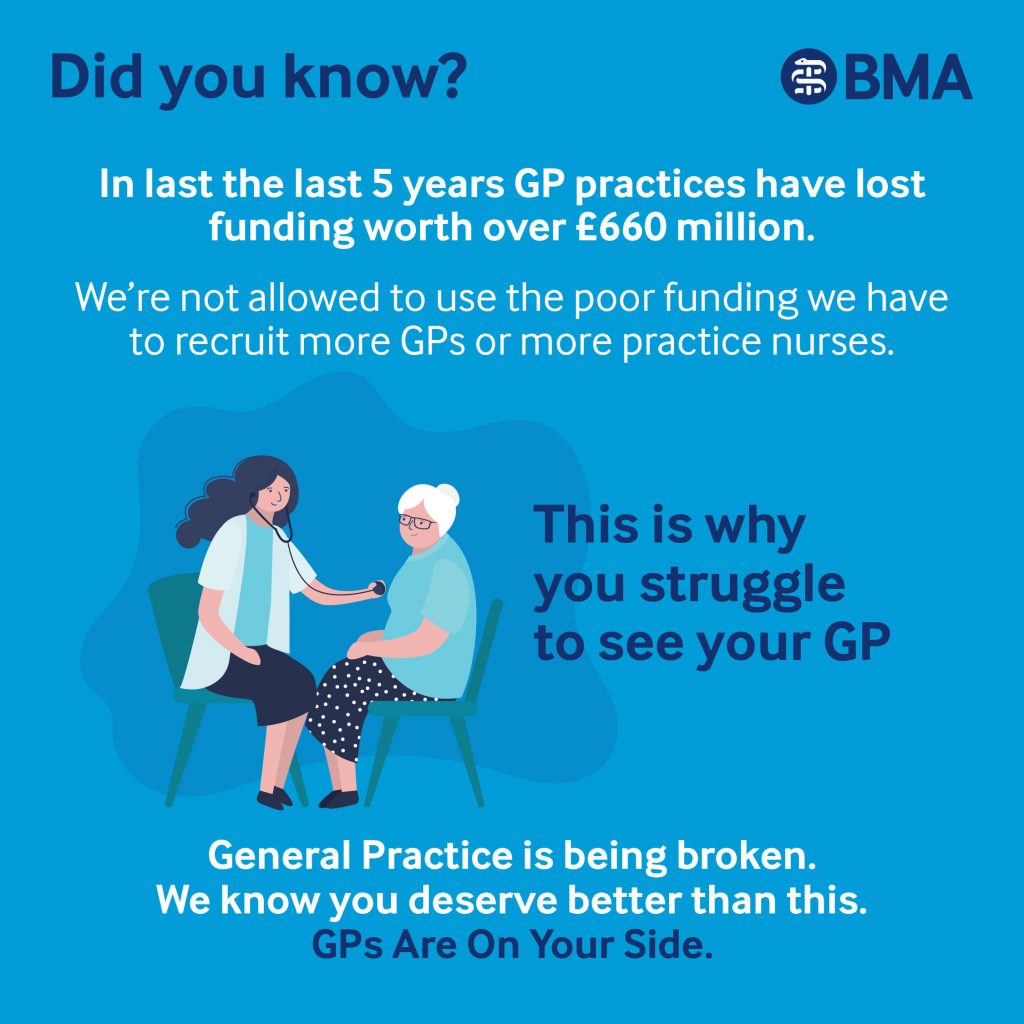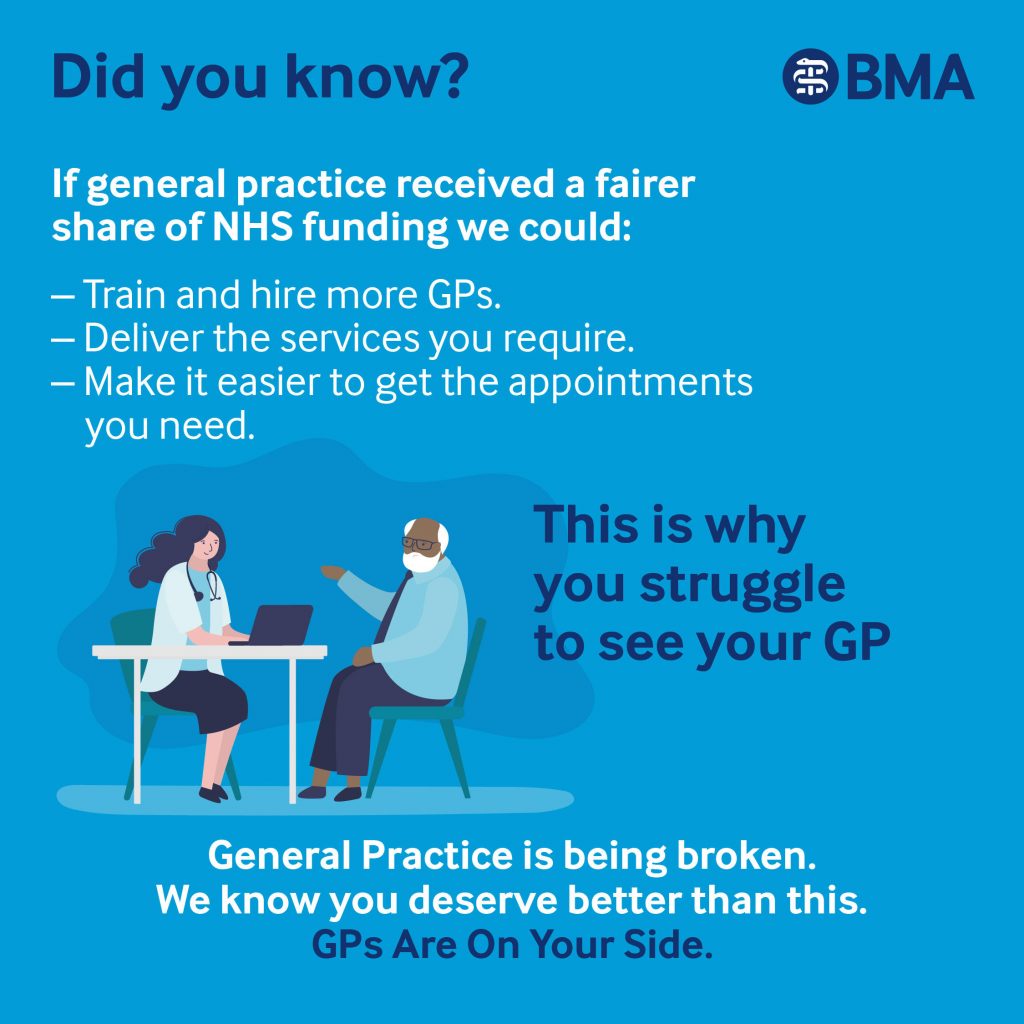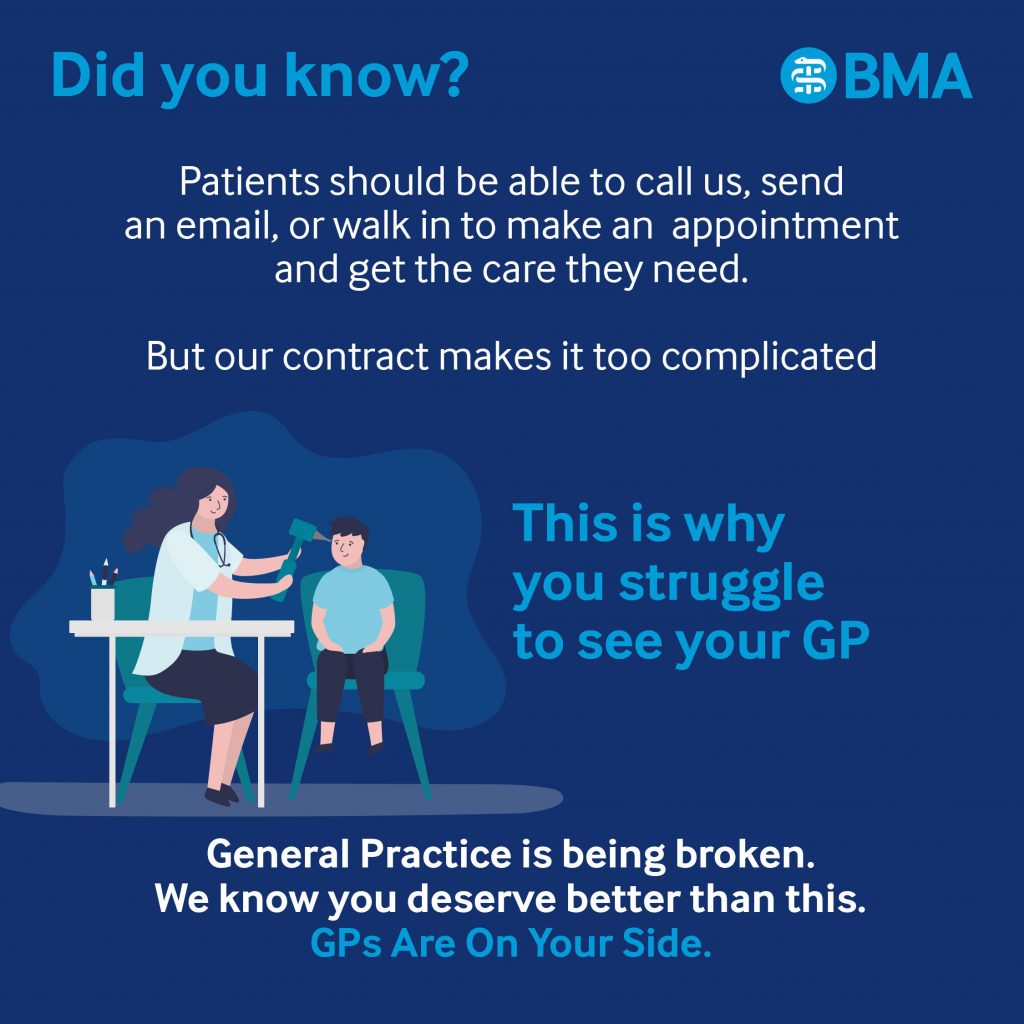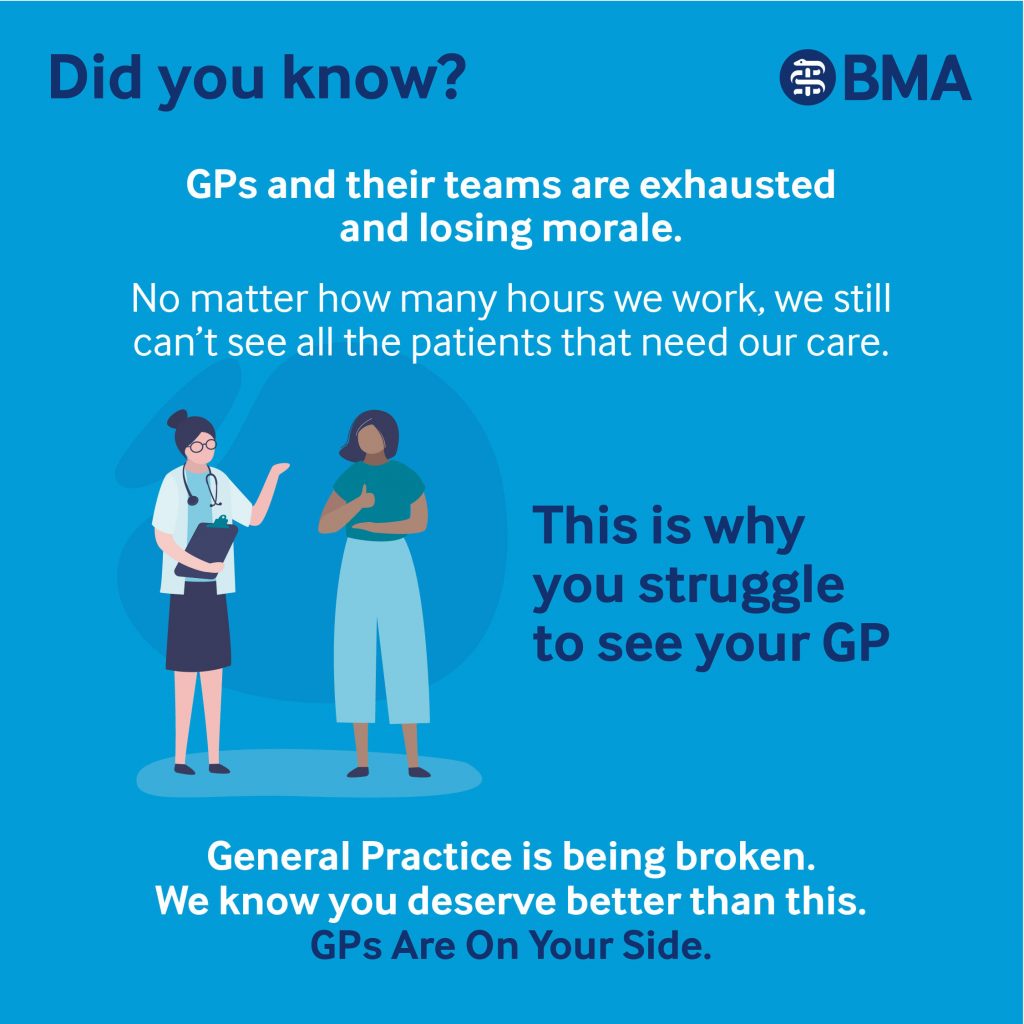GPs Are on Your Side/Collective Action
This news article was originally intended to share the BMA campaign called GPs Are on Your Side. You can read about that and watch the video in the lower half of this post.
But with the news last week that GP Partners and Contractors had voted overwhelmingly in favour of ‘collective action’, we wanted to provide an update on what this may mean for GP practices and patients.
The BMA campaign gives some really important context to this vote, so please take a few minutes to read the information below or watch the video.
GP Partners Vote for Collective Action
The first thing to say is that collective action is not a strike. No services will be withdrawn.
It is a chance for all GP practices to act together and send a clear message that General Practice in its current form is not working.
The BMA suggests GP practices consider at least one of 10 safe, sustainable options. These might include GPs not seeing more than the recommended safe maximum of 25 patients per day. Once the ‘limit’ is hit, patients could be directed to local urgent care centres.
For context, GPs regularly see 40+ patients a day. This adds to the already high admin workload and is a considerable factor in GP burnout.
It is up to GP practices to decide what actions to take. We’re talking about this in our practices and collectively as a Primary Care Network. As we make those decisions, we will, of course, communicate with patients.
We want to say this: Taking collective action is not about penalising patients, and it is not a decision any GP practice has taken lightly.
The actions are designed to turn up the pressure on the new Government to do the right thing for General Practice.
We need a new contract that is fit for purpose, one that provides the investment and workforce needed to reset general practice and provide patients with family doctors.
GPs Are on Your Side
The British Medical Association (BMA) campaign is called ‘GPs are on your side’.
It’s about the serious challenges GP practices face in terms of funding and demand, and why you might struggle to see your GP.
It provides vital context to the decision of GP Partners and Contractors to vote for collective action.
The campaign also discusses the effect of the crisis in General Practice on the people working in GP practices, from the Doctors to the Reception staff and everyone in between.
Watch the BMA campaign video below:
GP practices get just £107.57 a year for each patient, whatever their health needs. That’s less than the cost of a TV licence.
This means we’re only given 30p a day for every patient registered with us – less than the cost of an apple.
GPs want the same things that you do.
We believe nobody should struggle to see their family doctor.
We believe general practice deserves a bigger slice of NHS funding so we can train and hire more GPs, deliver the services you require and make it easier to get appointments to see your GP and practice team.
We know you deserve better than this. GPs Are On Your Side.
Did you know?
Did you know in the last 5 years, GP practices have lost funding worth over £660 million?
We’re not allowed to use the poor funding we have to recruit more GPs or more practice nurses.
That’s why you struggle to see your GP.
Did you know that if general practice received a fairer share of NHS funding, we could:
- Train and hire more GPs.
- Deliver the services you require.
- Make it easier to get the appointments you need.
This is why you struggle to see your GP.




Did you know that patients should be able to call us, send an email, or walk in to make an appointment and get the care they need?
But our contract makes it too complicated.
This is why you struggle to see your GP.
Did you know that GPs and their teams are exhausted and losing morale?
No matter how many hours we work, we still can’t see all the patients that need our care.
This is why you struggle to see your GP.
General Practice is being broken. We know you deserve better than this. GPs Are On Your Side.
About the BMA
The British Medical Association is the trade union for doctors and medical students in the UK, offering support and representation.
They campaign to raise awareness about issues facing the medical workforce and health care.
Find out more at bma.org.uk.
